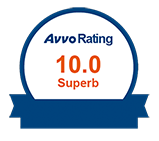Anchorage Alaska Maritime or Boat Accident Lawyer
Every year, Alaskans are injured or killed in boating and maritime accidents across the state. Boat Accident Lawyer Robert Stone Law Office LLC in Anchorage Alaska understands the complexities of accidents on the water. Both state and federal laws apply, depending upon the circumstances surrounding the accident. Robert Stone Law Office LLC can assist you with injuries arising on commercial vessels (i.e., oil tanker, commercial fishing boat), injuries arising on a charter boat (i.e., saltwater fishing and/or riverboat fishing), or injuries arising on personal watercraft (i.e., ocean boats, river boats, ski boats, wave runners). We can help you receive fair compensation, regardless of whether it is through the state or federal maritime laws.
Boating Negligence
Like compensation from auto accidents between passenger vehicles, compensation from boating accidents between personal watercraft is governed by the law of negligence. To prove a claim for negligence, the injured person must prove that 1) the wrongdoer had a duty of care to the injured person, 2) the wrongdoer breached that duty of care, 3) the breach of duty way a cause of their own, and 4) an actual injury occurred.
Many boating accidents are caused by intoxicated boaters. The DUI laws in Alaska extend to boating. Thus, a person operating a boat with a blood alcohol content in excess of .08% can be charged with a DUI. From a negligence standpoint, a person operating while under the influence has a more difficult time fighting liability. There are additional “rules of the road” that apply to boating that create liability upon the tortfeasor.
Unseaworthy Vessels
Many boating accidents will arise under claims of negligence. However, some claims may also be brought under federal maritime law if the activity that caused the harm was a traditional maritime activity, which includes most commercial or seafaring activities. Under maritime law, the owner or operator of a maritime vessel must maintain a seaworthy vessel. Seaworthy generally means that the ship is safe to live and work on.
Examples of claims arising under maritime law include, but are not limited to, overworking the crew, improperly staffing the crew, utilizing defective tools or safety equipment, failing to use safety equipment, violations of US Coast Guard regulations, defective railings, and failure to equip the vessel with proper anti-slip material. Maritime claims are generally easier to prove than negligence under Alaska law.





